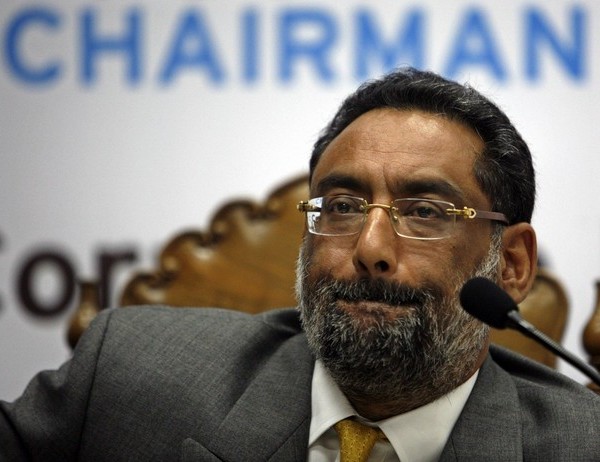Chief Economic Advisor Tastes Bitter Drabu Bill in J&K
Haseeb Drabu, J&K Finance Minister

SRINAGAR: India’s Chief Economic Advisor, Arvind Subramanian, left the University of Kashmir on Wednesday with mixed feelings with the state's Finance Minister, Haseeb Drabu, questioning his wisdom on the "cooperative" structure of federalism in the country.
“Indian federal system is very centralised as far as the economy is concerned," Drabu said in response to Subramanian's statement that cooperative federalism is "in vogue" across the country.
"It (federalism) is somewhat decentralised as far as politics is concerned but it is less than cooperative. The central governments are more centric than federal and federalism is more coercive than cooperative,” Drabu, who served in the erstwhile Planning Commission, said.
Arvind Subramanian, Government of India’s Chief Economic Adviser, was speaking on devolutions and resources at a function in the University of Kashmir as the author of India’s latest Economic Survey.
Drabu suggested bringing changes into the survey to make it “little more relevant” to the states.
"All the wisdom does not lie with the central government. India’s 29 states are at different levels of development and have different policy perspective. That wisdom must be reflected in the economic survey,” he said.
However, he said that the evolution of economic management systems has created a situation where the finance ministers of the states have become twelfth members of the cricket team.
Crediting the BJP-led central government for abolishing Planning Commission that paved way for "radical restructuring" of economic policy, Drabu , however, rued that there has been no follow up on the issue.
“States are in chaos about whether they should have a plan or not. Fourteenth Finance Commission has changed fiscal federal system in India but there is no corresponding follow up about how this will work,” Drabu said.
Accusing New Delhi of funding corrupt political systems in J&K, Drabu stated that these systems packaged their malaise as 'the way forward'.
"There were political systems funded by the Centre who sold corruption as cohesion," he said.
Indicating that the J&K government may not implement the new GST regime which will be rolled out from April next year, he said it will compromise the special status enjoyed by the state under Article 370 of the Indian Constitution.
“J&K is the only state that has the authority to legislate on all taxes and this flexibility will go with the new GST regime”, Drabu added.



